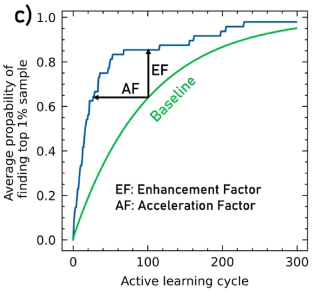From materials discovery to system optimization by integrating combinatorial electrochemistry and data science
 Image credit: Current Opinion in Electrochemistry
Image credit: Current Opinion in ElectrochemistryAbstract
Insight generation from electrochemical experiments augmented by data science requires broad, systematic, and well-defined parameter variations which build upon automation, data management, and flexible instrumentation interfaces. Combinatorial electrochemical synthesis of interfaces and interphases with liquid electrolytes by automated high-throughput robots offers the required high reproducibility. However, automation of electrochemistry is not enough as data needs to be collected in ways that make it machine readable and interpretable. Once established this integration allows scientists and algorithms to transfer knowledge and insights from interfaces and interphases to systems like batteries. Herein, we present an overview of recent innovative methods of combinatorial electrochemistry and synthesis which have been integrated into our platform for accelerated electrochemical storage research (PLACES/R), targeting the entire battery research value chain.